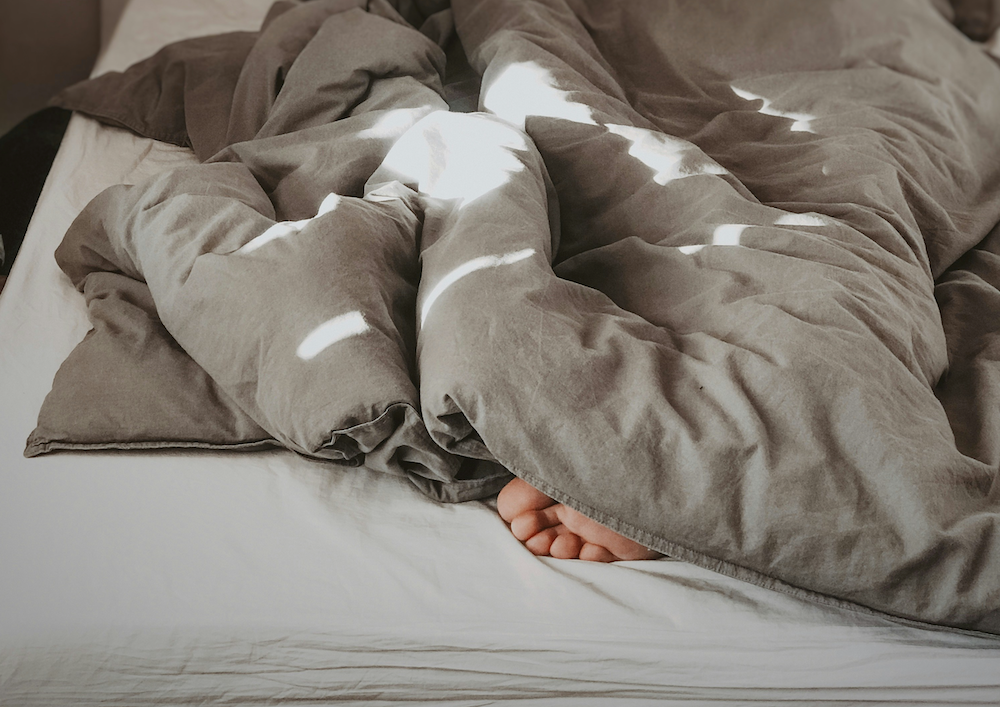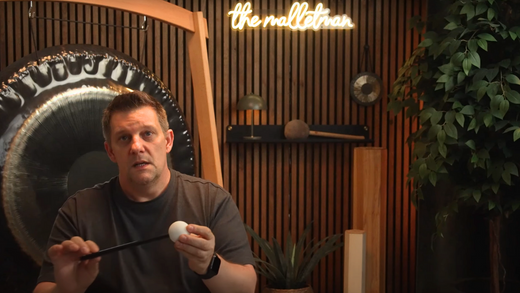Sound therapy and sound techniques are increasingly being used to deeply relax the body and mind and thus alleviate sleep disorders. A combination of sound therapy and relaxation techniques often helps those affected. Deeply relaxing sounds and vibrations help to calm the mind and create a calm environment that improves sleep and reduces sleep disorders. In particular, the intense sound of a gong can help you to gradually find your way back to deep and continuous sleep. In this article, we explain how sounds can help to alleviate sleep disorders and promote deep, relaxed sleep.
When do we speak of a sleep disorder?
Sleep disorders - also known as insomnia - often manifest themselves in difficulty falling asleep or sleeping through the night and increased tiredness during the day. However, both symptoms can also occur simultaneously. Short-term sleep disturbances lasting a few days occur in almost all people in certain stressful situations or during physical illnesses and are generally harmless. However, if your sleep quality is severely impaired at least three nights a week over a period of more than a month and this has a negative impact on your quality of life, you should definitely have this checked out. These cases are usually referred to as sleep disorders.
How can sounds help with sleep disorders?
Sounds can alleviate sleep disorders in a gentle and natural way and possibly even resolve them completely. Both targeted sound therapy on the body and distant gong or sound meditation can reach your body and mind at a very deep level. This can make it easier for you to focus on rest and relaxation and to banish your sleep disorders with the gentle vibrations. The regular use of sound in particular can promote easy falling asleep and sleeping through the night.
The effect of gong sounds
The gong has always been used in sound healing and to accompany deep meditation. We have summarized for you here why the vibrations of the gong are so powerful and can even help with sleep disorders:
1. relaxation and stress reduction
The powerful, penetrating tones of a gong have a calming effect on the autonomic nervous system. In particular, the parasympathetic part of the nervous system, which is responsible for relaxation and calm, is activated. This leads to relaxation in your entire system and stress can be relieved more easily and quickly. This in turn means that your cortisol levels (the so-called "stress hormone") also fall, which in turn contributes to better sleep.
Tip: You can find out more about the influence of sounds on your hormone balance in our article "Simply explained: how gong sounds affect hormones".
2. promotion of meditation
Gong sounds can complement and deepen very different meditation practices in an enriching way. They calm your autonomic nervous system, influence your brain waves and affect your hormone levels. Especially if you find it very difficult to calm your mind, the even and harmonious sound of a gong can help you to let go of your thoughts and immerse yourself in a meditative state. A calm mind in turn makes it easier to fall asleep and stay asleep and can therefore alleviate sleep disorders.
3. vibration and body awareness
The vibrations created by strike or rubbing a gong spread throughout the room and flow through your entire body in a very gentle way. During a gong meditation or gong bath, you can often recognize very quickly which areas of your body the sound can flow through unhindered and where it is more difficult. This very conscious sensing with the help of the vibrations helps you to develop a better body awareness. This can make it easier for you to recognize blockages in your body and reduce tension and pain that could disturb your sleep.
Study on sound massage and sleep disorders
Dr. Claire Rull, a French physician who works as a general practitioner in Paris, investigated in her doctoral thesis how sound massages can affect sleep quality. In the study, 29 patients with chronic sleep disorders received three sound massages at weekly intervals. The results were impressive: the severity of the insomnia decreased significantly after the treatments. Four out of six participants were even able to reduce or even completely stop taking sleeping pills after the three sound massages. You can find out more about this study in the blog post from the International Association of Sound.
Note: During a sound massage, singing bowls are placed on or near the body and gently struck. An experienced sound therapist can adapt the sound massage to your specific needs and help you specifically with sleep disorders.

How you can use gong sounds for sleep disorders
Integrate gong sounds into your evening routine
Before going to bed, take five to ten minutes to play your gong and feel the vibrations flow through your body. If you don't have a gong, you can also play a gong recording on YouTube or Spotify while you're getting ready for bed or when you're already lying in bed.
Gong meditation as a regular practice
Find instructions for gong meditation and try out which technique suits you best. You can combine playing the gong with visualizations, breathing exercises, mindfulness meditations and much more - but of course you can also just listen to the sounds consciously. No matter which type of gong meditation you choose, make sure you find a regular practice for yourself - meditation in the evening can be particularly helpful if you have trouble sleeping.
Occasionally visit gong baths
Participating in a gong bath can be a very profound and healing experience. This method is a guided session in which you lie in a room - usually with other participants - while an experienced sound therapist plays one or more gongs. Find out about gong baths in your area and try out whether this type of sound therapy is right for you. Every gong bath is unique and has a different structure - but the basic idea is always the same: sound baths help you relax and can therefore have a significant impact on the quality of your night's sleep.
Note: Sounds are a very gentle method of dealing with problems and complaints - yet their effect can be very powerful and deep. Therefore, when choosing guided gong baths or gong meditations, always make sure that they are performed by an experienced person.
Conclusion: Sound therapy for sleep disorders
Sound therapy with gongs can therefore be an effective way to naturally alleviate sleep disorders. The relaxing and harmonizing sounds have an effect on many levels of our body and mind and help you to achieve more peace and thus a restful sleep. You can only find out which method suits you best by trying it out. In any case, we recommend that you stick with your chosen sound practice for a period of around three weeks so that you can better assess the effect.





